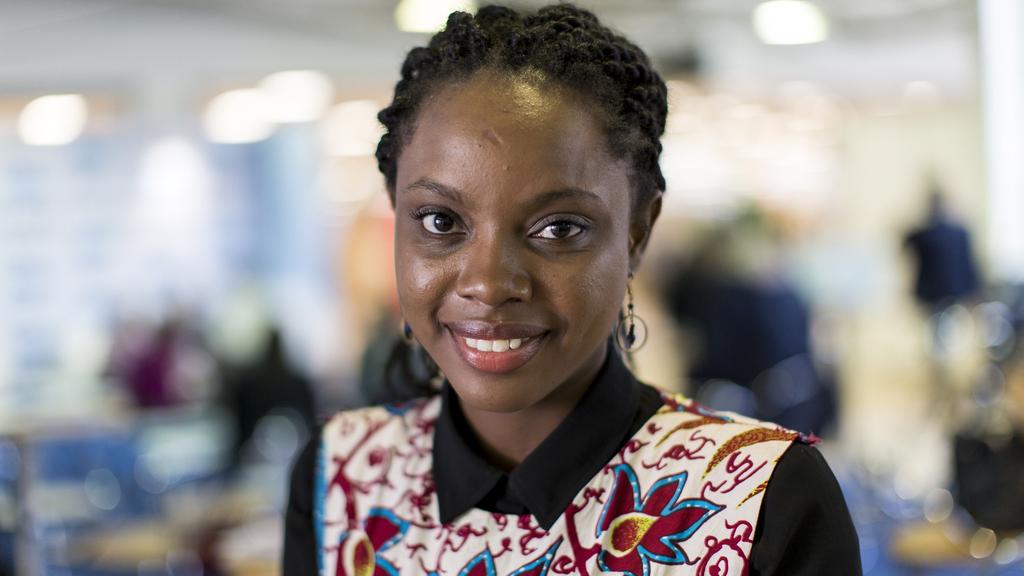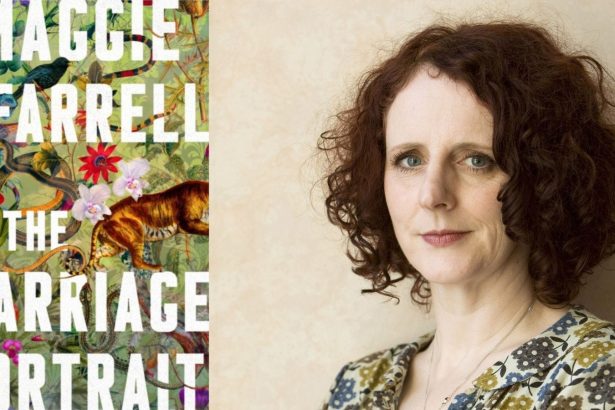Ayobami Adebayo was fidgeting in the Lagos bank she worked in, restless, desperately bored and unfulfilled.
“It was mind-numbing work,” she says. “I was terrified that if I didn’t start working on a novel I would spend the rest of my life there. I just had to get on with it.”
So out came her mobile phone and she started typing. Just snippets of a story at first, as she got to know the husband and wife she wanted to write about – Akin and Yejide.
They became the central characters in Adebayo’s wonderful debut novel, Stay With Me, which was published this month and has already been shortlisted for the Baileys Women’s Prize for Women’s Fiction.
To complete the circle, she found out she had been nominated for the award on her mobile phone, when the Twitter account for the prize began following her.
It is a lovely story, but a lot of hard work went into making Adebayo an overnight success.
Ten years ago, when she was a 19, she signed up for a writing workshop led by fellow Nigerian novelist Chimamanda Ngozi Adichie, and began work on the short story that would eventually become Stay With Me.
Much later, after Adebayo was accepted to the University of East Anglia’s creative writing course, veteran author Margaret Atwood helped her shape the first chapter. Adebayo loved being around such hugely influential authors. Her copy of Adichie’s Half of a Yellow Sun has a note of encouragement from the author that she would often refer to – “it felt impossible to write what I was trying to say” – and Atwood also gave her real confidence to keep going.
The mark they made is all over Stay With Me, in the combination of a domestic Nigerian setting and precise plotting. But it is still very much Adebayo’s voice; a fascinating, pacey, almost gothic story of what happens when a seemingly happy couple struggle to have children. “There’s this idea that at the lowest rungs of the social ladder in an African family is a childless woman – and the lowest rung of all is a motherless child,” says Adebayo of her novel’s premise.
“Yejide has a bit of both at the start: she’s grown up without a mother in a polygamous family and she knows how important that is – the mother is the person who speaks up for you,” says Adebayo.
“She’s quite vulnerable but she finds a way to become stronger, though she has this desire to have somebody who belongs to her.”
What occurs when she can’t initially fulfil that desire shapes the whole book. Yejide’s vivid stand-in mothers collude with Akin to provide him with another wife who perhaps can give him children.
Yet the tone of this shock to Yejide’s life is never hysterical. Akin isn’t a bad guy, really, and there’s even a comic touch to Yejide’s quest for a child: she goes on a mad journey to the Mountain of Jaw Dropping Miracles, breastfeeding a goat amid the chants of strange mystics.
“That’s very plausible,” Adebayo says. “I wanted to look at the kind of pressure we put people under where they will literally do anything to get pregnant. It was crucial to keep the book light, because I think that’s how people cope. It’s important to be able to laugh in that situation.”
This is an interesting point because, despite the tragedy that pockmarks the book, Yejide makes a kind of peace with herself. And Adebayo – who at 29 has no children – is fascinated by whether happiness can only be defined by having them.
“Having children does become tied to a sense of identity and our value as humans,” she says. “I wanted to examine that because it is so problematic: not everybody is going to want or be able to have children.
“So I wanted Yejide to have this journey where she can accept that she is enough as a person – it is good that she wants children but if she doesn’t have them, it doesn’t make her any less of a human being or woman.”
Elsewhere, there’s some really adept handling of the political situation in Nigeria in the 1980s, where elections were moulded by the military and police corruption was rife. Adebayo never hits the reader over the head with polemic, but allows the atmosphere of suspicion and threat to bubble away in the background.
“That was deliberate as Yejide would have been too consumed with the drama in her own life,” she says.
“But later it reflected the distance middle-class Nigerians can have from what’s going on in their country because they can afford to. They can build fences, have people protect them.”
And that’s what makes Stay With Me so refreshing – the politics sits happily alongside a domestic drama where sadness and humour can coexist. The dialogue – sometimes in vibrant Yoruba – is a real treat, too.
“I would most of all love people to really enjoy this book,” Adebayo says.
“To be transported into another world is my very favourite part of reading. I hope Stay With Me can do that for people, too.”


